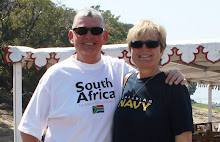
Our day trip in Yemen took us to the mountain villages of Manakha and Al-Hajrah, three hours’ drive from the port.
As we disembarked the ship we saw our transportation for the day – a ramshackle collection of ancient buses. The ship’s tour director told us that on a previous visit to Hodeidah she had dispatched a cleaning detail from the ship to spruce up the buses. The following year when the ship returned, imagine her surprise to find one of the ship’s buckets still on the bus where a crew member had mistakenly left it!
Practically all 155 of the ship’s passengers joined the rag-tag convoy. Our guide spoke impeccable English. Educated in England, he had a wife and child living in Germany but was a little fuzzy as to why he was back in Yemen. He explained the significance of the impressive curved dagger which all Yemeni men carry, passing his own dagger amongst us for inspection.
As we sped through small villages at the mercy of a driver who would have been a match for Paul Tracy any day, we couldn’t help but be charmed by the colourfully dressed children who waved and smiled. The men looked on passively whi le the women stayed in the background, veiled and hidden from our gaze. The road which links Hodeidah to the capital of Sana’a wound its way through mountainous terrain, dotted by stone dwellings with unusual window adornments. Various crops flourished on the terraced hillsides. Coffee, once the crop of choice, has been replaced by a far more lucrative one – qat (pronounced “cat”). Qat is not unlike a fig leaf and the juices produce a mild stimulant. Qat chewing is a national pastime of the male population – as we were to discover.
le the women stayed in the background, veiled and hidden from our gaze. The road which links Hodeidah to the capital of Sana’a wound its way through mountainous terrain, dotted by stone dwellings with unusual window adornments. Various crops flourished on the terraced hillsides. Coffee, once the crop of choice, has been replaced by a far more lucrative one – qat (pronounced “cat”). Qat is not unlike a fig leaf and the juices produce a mild stimulant. Qat chewing is a national pastime of the male population – as we were to discover.
Manakha was unspoiled by burgeoning tourism and from here we boarded four-wheel drives for the twenty minute ascent to Al-Hajrah.
The road was barely a track and children gleefully assisted the adult males in filling some of the more daunting potholes in our path. The view below us was breathtaking – the road snaked off into the distance,  the contoured terraces softening the harsh landscape. Villagers were out in force, the more enterprising ones offering various crudely made silver boxes, jewellery, teapots and daggers for sale. The children continued to charm, taking our hands and always smiling – a mutual admiration society.
the contoured terraces softening the harsh landscape. Villagers were out in force, the more enterprising ones offering various crudely made silver boxes, jewellery, teapots and daggers for sale. The children continued to charm, taking our hands and always smiling – a mutual admiration society.
A lunch of local specialities was served as we sat shoeless on rows of colourful carpets at the tourist hotel. We looked on as male villagers danced outside, flashing their daggers and chewing furiously.
Our guide and driver joined the chewing frenzy as we returned to Hodeidah but their euphoria was suddenly halted when one too many chancy passes failed and our bus brushed alongside an oncoming truck laden with toys. Fragments of broken red plastic telephones flew down the inside of our bus as we screeched to a halt, thankfully before the road surface ended and the narrow gully began. Fortunately the bus’s shattered windshield remained intact.
After much to-do, everyone was declared unhurt and in good spirits. Our shaken-up driver continued in a more sedate fashion, perhaps pondering his explanations.

No comments:
Post a Comment